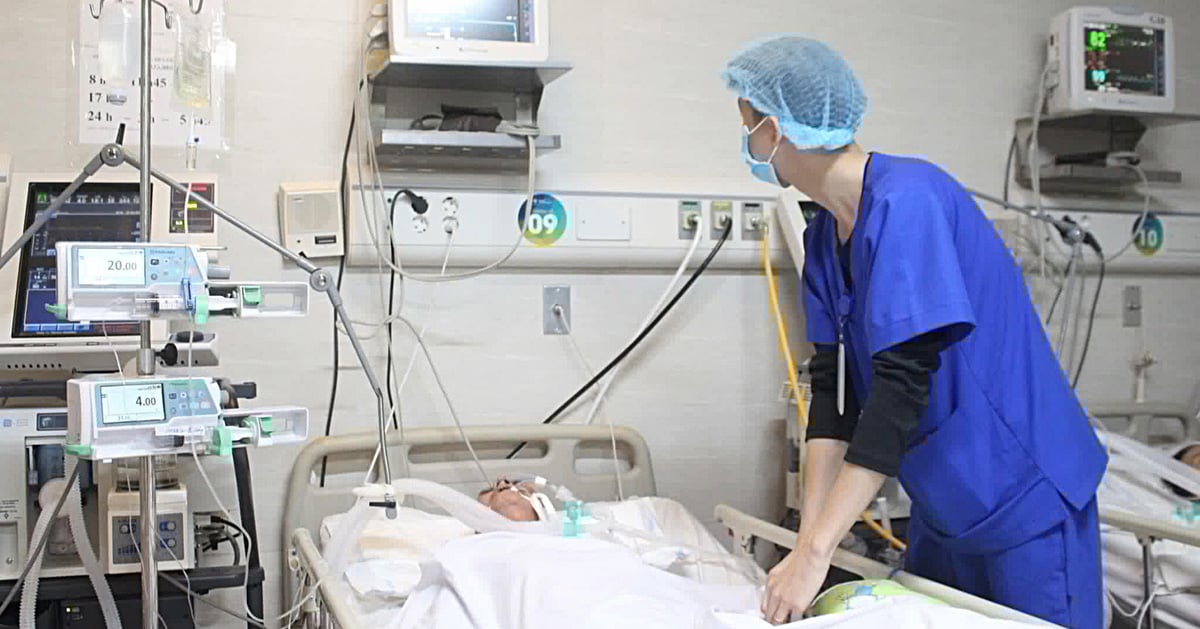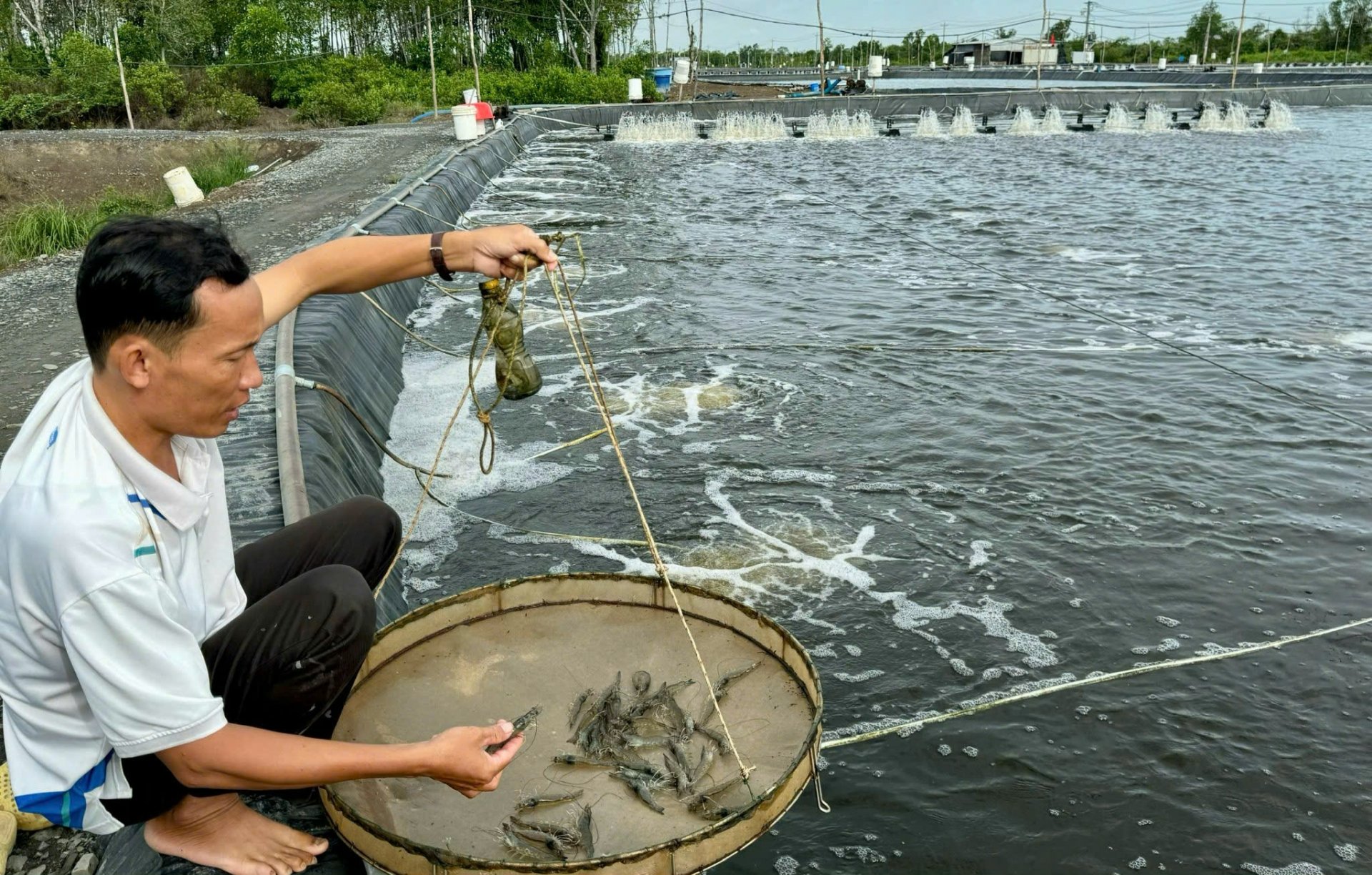The world is currently facing a series of serious health threats, notably an outbreak of pneumonia of unknown cause and the spread of seasonal flu.
Pneumonia of unknown cause and widespread influenza: A global health threat
The world is currently facing a series of serious health threats, notably an outbreak of pneumonia of unknown cause and the spread of seasonal flu.
These developments not only increase public concern but also pose major challenges to global health systems.
 |
| Illustration |
China has recently reported an increase in cases of pneumonia of “unknown cause”, with symptoms similar to Covid-19 such as fever, cough, pneumonia, and other respiratory problems.
These cases are overwhelming hospitals, creating a situation of stress and shortage of resources. Experts fear that the new virus could pose a major threat, similar to past epidemics, with the potential to cause large outbreaks in the community.
It is understood that China has taken measures to cope with the worst-case scenario, while strengthening surveillance and prevention to minimize the spread. However, the exact type of virus causing the disease has not yet been identified, making the situation complicated and difficult to control.
Another virus that is causing concern is HMPV (Human Metapneumovirus), a pneumonia-causing agent similar to influenza or respiratory syncytial virus (RSV).
Although the virus mainly spreads during winter, the recent increase in HMPV cases in China is also a cause for concern.
HMPV is spread through droplets from coughing, sneezing, direct contact with secretions of an infected person or shared objects. The symptoms of this disease are similar to a cold, but it can easily cause serious complications, especially in the elderly and children.
In addition to the pneumonia epidemic of unknown cause, seasonal flu is also spreading rapidly around the world. In the United States, data from the Centers for Disease Control and Prevention (CDC) shows that this year's flu epidemic is getting worse, with at least 5.3 million cases of flu, 63,000 hospitalizations, and more than 2,700 deaths, including children.
Southern and southwestern states are seeing particularly high levels of infection, and hospitals, especially pediatric facilities, are overwhelmed.
Seasonal influenza is usually a mild illness in young, healthy people, but for the elderly, children, and those with underlying health conditions, the effects can be severe, causing dangerous complications such as pneumonia, respiratory failure, and even death. This year, influenza B is the dominant virus circulating in many countries, especially in Europe, where the flu epidemic is increasing rapidly after the end-of-year holidays.
According to the World Health Organization (WHO), the respiratory virus epidemic is spreading around the world, and global health agencies recommend that countries maintain effective preventive measures to limit the spread. In particular, vaccination against influenza and respiratory infections is one of the important measures to reduce the incidence of disease and severe complications.
For influenza, vaccination is the most effective way to prevent illness, hospitalization, and death. Health experts recommend that people, especially the elderly, children, and those with underlying health conditions, get vaccinated against influenza to protect their health and the health of the community. Influenza vaccines need to be administered each year because influenza virus strains can change, and vaccines need to be updated to match new variants.
Although Covid-19 vaccines have been developed and widely administered, concerns about new variants of the SARS-CoV-2 virus remain a problem that cannot be ignored.
The virus continues to mutate, and each variant has characteristics that spread more quickly, making the epidemic situation more complicated. Recently, experts have recorded some signs of Covid-19 outbreaks in many countries, although the situation is no longer as serious as before.
Covid-19 symptoms can last for months, with problems such as fatigue, shortness of breath, cognitive impairment (brain fog), and cardiovascular complications. Many studies have shown that Covid-19 vaccination not only reduces the risk of infection but also significantly reduces the risk of long-term symptoms.
Faced with the rise of these diseases, health experts around the world emphasize the importance of vaccination, especially for flu and Covid-19.
Being proactive in getting vaccinated not only helps protect yourself but also reduces the risk of spreading to those around you, contributing to building a community "antibody herd", reducing the burden on the health system.
Whether it is seasonal flu, pneumonia of unknown cause, or new variants of Covid-19, according to health experts, each of us needs to maintain disease prevention habits by getting fully vaccinated, wearing masks, washing hands regularly, and limiting contact with sick people. Health is not just for one person, but a shared responsibility of the whole community.
To proactively prevent seasonal flu, protect the health of yourself, your family and the community, the Ministry of Health recommends that when people have symptoms of cough, fever, runny nose, headache, fatigue, they should not arbitrarily test or buy medicine to treat at home but should contact a medical facility for timely advice, examination and treatment.
Cover your mouth and nose when coughing or sneezing, preferably with a tissue or handkerchief or disposable tissue or your sleeve to reduce the spread of respiratory secretions.
Wear a mask, wash your hands with soap and clean water or hand sanitizer (especially after coughing or sneezing). Do not spit in public places.
Avoid unnecessary contact with flu patients or suspected cases. Practice a healthy lifestyle, increase physical activity, and improve your health.
Regarding the treatment of seasonal flu, doctors recommend that flu treatment is only easy and effective when detected early, because if not detected and treated promptly, this disease can leave unpredictable consequences such as sinusitis, ear infections, and more seriously, multiple organ failure.
Therefore, when there are signs, people should be alert and go to the doctor immediately for timely treatment and detection, especially the disease is more dangerous in people with chronic cardiovascular and respiratory diseases, people with immunodeficiency, the elderly (> 65 years old), children (
To avoid complications and unpredictable consequences that can occur due to the flu, experts note that when there are signs of the flu, people should go to a medical facility for timely examination and testing.
If you have flu symptoms such as cough, runny or stuffy nose, sneezing, sore throat, fever, headache, fatigue, chills, body aches; then 24 hours after the fever is the most appropriate time to get tested to know if you have the flu or not.
According to experts, because there is no specific treatment for influenza, patients should not take medicine indiscriminately, but should take medicine according to the doctor's instructions.
Besides, patients should not worry too much when they have the flu, because usually patients recover completely after a few days and all symptoms disappear after 1 - 2 weeks.
Regarding nutrition and lifestyle, people need to supplement water (because water detoxifies the patient's body, water also has the effect of thinning mucus that causes nasal congestion and preventing body infections);
Eat soft, easy-to-digest and nutritious foods (porridge, chicken soup); Supplement foods rich in zinc (beef, shrimp, oysters, clams, chicken, cereals, oats...); Eat vegetables and fruits; Add ginger and garlic when preparing food; Eat fruits rich in vitamin C to boost the immune system (oranges, tangerines, grapefruits).
Note, when diagnosed with influenza A, patients should avoid crowded places to limit spread to the community.
With influenza A, experts recommend that vaccination is still the top priority, especially in the context of the current complicated developments of the Covid-19 epidemic.
In the US, an average of about 900 people have died from Covid-19 each week over the past year, according to the US Centers for Disease Control and Prevention.
Source: https://baodautu.vn/viem-phoi-khong-ro-nguyen-nhan-va-dich-cum-lan-rong-moi-de-doa-suc-khoe-toan-cau-d238925.html




![[Photo] Thousands of Buddhists wait to worship Buddha's relics in Binh Chanh district](https://vstatic.vietnam.vn/vietnam/resource/IMAGE/2025/5/3/e25a3fc76a6b41a5ac5ddb93627f4a7a)



























![[Photo] Bustling construction at key national traffic construction sites](https://vstatic.vietnam.vn/vietnam/resource/IMAGE/2025/5/2/a99d56a8d6774aeab19bfccd372dc3e9)



































































Comment (0)